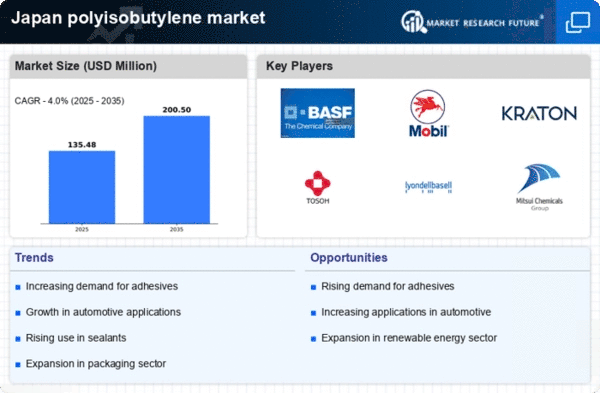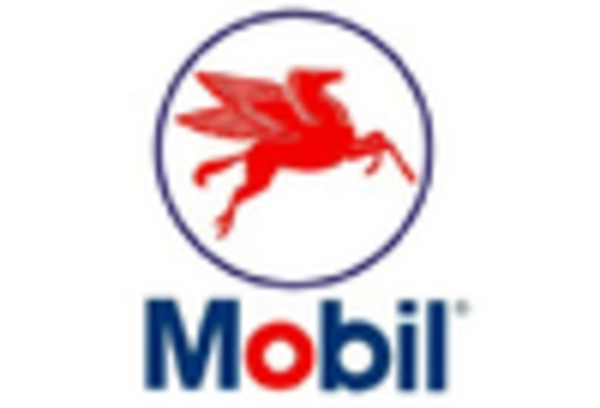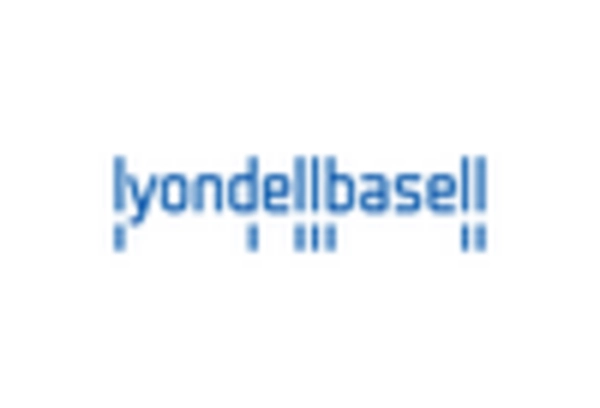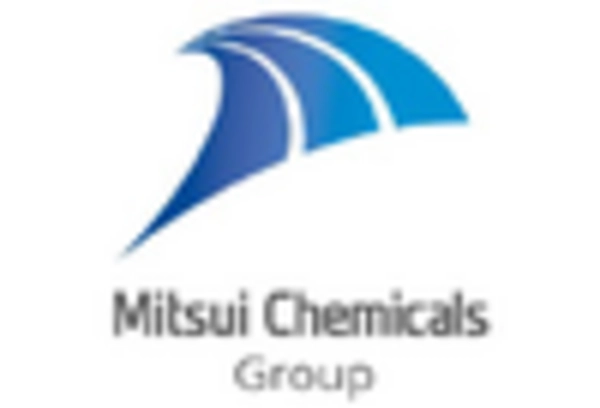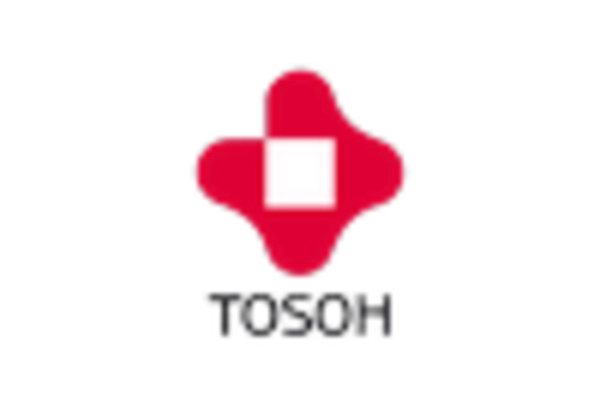The polyisobutylene market in Japan is characterized by a competitive landscape that is increasingly shaped by innovation, sustainability, and strategic partnerships. Key players such as BASF SE (DE), ExxonMobil Chemical (US), and Mitsui Chemicals (JP) are actively pursuing strategies that emphasize technological advancements and market expansion. BASF SE (DE) has focused on enhancing its product portfolio through research and development, while ExxonMobil Chemical (US) is leveraging its extensive supply chain to optimize production efficiency. Mitsui Chemicals (JP) appears to be concentrating on sustainability initiatives, aligning its operations with environmental regulations and consumer preferences. Collectively, these strategies contribute to a dynamic competitive environment where innovation and operational excellence are paramount.In terms of business tactics, companies are increasingly localizing manufacturing to reduce lead times and enhance responsiveness to market demands. Supply chain optimization remains a critical focus, particularly in light of fluctuating raw material prices and global logistics challenges. The market structure is moderately fragmented, with several key players exerting influence over pricing and product availability. This fragmentation allows for niche players to thrive, although the presence of larger corporations often dictates market trends and standards.
In October BASF SE (DE) announced a significant investment in a new production facility in Japan aimed at increasing its polyisobutylene output. This strategic move is expected to enhance BASF's capacity to meet growing domestic demand while also reducing transportation costs associated with imports. The establishment of this facility underscores BASF's commitment to strengthening its market position through localized production and innovation.
In September Mitsui Chemicals (JP) launched a new line of eco-friendly polyisobutylene products designed to cater to the automotive and adhesive industries. This initiative reflects a broader trend towards sustainability, as Mitsui seeks to differentiate itself in a competitive market increasingly focused on environmentally responsible solutions. The introduction of these products may not only enhance Mitsui's market share but also align with global sustainability goals, potentially attracting environmentally conscious consumers.
In August ExxonMobil Chemical (US) entered into a strategic partnership with a leading technology firm to develop advanced manufacturing processes for polyisobutylene. This collaboration aims to integrate AI and automation into production, thereby increasing efficiency and reducing waste. The implications of this partnership could be profound, as it positions ExxonMobil at the forefront of technological innovation within the industry, potentially setting new benchmarks for operational excellence.
As of November the competitive trends in the polyisobutylene market are increasingly defined by digitalization, sustainability, and technological integration. Strategic alliances are becoming more prevalent, as companies recognize the need to collaborate in order to innovate and respond to market demands effectively. Looking ahead, competitive differentiation is likely to evolve from traditional price-based competition towards a focus on innovation, technology, and supply chain reliability. This shift may redefine market dynamics, compelling companies to invest in R&D and sustainable practices to maintain their competitive edge.


